Economically, environmentally and socially sustainable places that support built and historic environment conservation
In a blog on Built Environment Forum Scotland (BEFS) Bulletin, IHBC Director Sean O’Reilly offers his own take on the progress, relevance and application to BEFS and other national networks of the IHBC supported and UK-wide All Party Parliamentary Group for Conservation Places and People (CPP APPG).
Contents |
Built Environment Forum Scotland
Following the publication last year of The Value of Heritage report, this Bulletin features a blog focussed on Democratic tools for change, and the IHBC’s new advocacy route. Sean O’Reilly, IHBC Director has provided insight on IHBC’s work to establish the All-Party Parliamentary Group (APPG) on Conservation, Places and People (CPP), and the relevance of the five recommendations included in their report for Scotland.
IHBC Director Seán O’Reilly
The All-Party Parliamentary Group (APPG) on Conservation, Places and People (CPP) is now the advocate of the diverse benefits of historic and built environment conservation across Westminster Parliament’s broad and diverse remits. Its establishment was led by the Institute of Historic Building Conservation (IHBC), a UK-wide professional body and a charity.
APPGs are the democratic equivalent of the Scottish Parliament’s Cross-party Groups. While described in Westminster as ‘informal cross-party groups that have no official status within Parliament’, they are also ‘run by and for Members of the Commons and Lords’. As such, they can be the most accessible, transparent and – potentially – influential tool in democratic processes to access the networks that help shape legislation.
Why an APPG?
The IHBC invested in the promotion of an APPG dedicated to all aspects of historic environment conservation as, after many years of active engagement, and informed consultations, it seemed we had made little difference to actual outcomes. Worse still, our pro-active advocacy on more substantial initiatives that would make a huge difference to outcomes – including funding and supporting research into various forms of conservation-linked VAT relief – had made even less headway.
Formation
In April 2018, the IHBC’s Communications and Outreach Committee supported an informal proposal to kick-start a wholly new approach to the IHBC’s advocacy, and take our agenda in its entirety to a place we could see it making a difference across the UK: Westminster.
After Board agreement, there then followed a long process – not a little convoluted by the global pandemic – that resulted in September 2020, when the CPP APPG was established with Layla Moran MP as its first Chair.
At every stage of the journey our success depended on close liaison and agreement – and plenty of compromise – with the MPs and Lords supporting us. In that, our consultant APPG Secretary across the whole process, journalist David Blackman, played a critical role. Not only did he lead on the political interface and in negotiating the not-inconsiderable administrative complexities of Westminster, but he also brought in the political-networked London-based PR team at Powerscourt, who worked pro bono to establish the initial member network.
Today the APPG, now chaired by James Grundy, Conservative MP for Leigh in Greater Manchester, looks to harness the passion many people feel about the heritage of their local area at the political and legislative levels.
CPP APPG Inquiry
The CPP APPG Members agreed their Group’s terms as being:
‘To support built and historic environment conservation as the means to deliver successful places, which are economically, environmentally and socially sustainable. This includes using heritage to help places adapt to the diverse needs of current and future communities, whilst supporting enterprise, transport connectivity, health, climate change efforts and quality of life.’
Following that, over the first year and a half of the Group it established, launched, closed, and published its first scoping inquiry, into ‘The Value of Heritage’. For that, the group received extensive written evidence demonstrating the substantial economic, environmental and social value that heritage can actually deliver, not least through its sustainable management.
With input from sector experts at a series of oral hearings, the APPG has also probed what holds back efforts to regenerate historic communities and how heritage could dovetail with the UK government’s broader agenda of ‘levelling up’.
The report’s findings and conclusions overall were based on this mixture of written submissions and verbal evidence, some presented to the APPG over oral hearings themed around Economy, Regeneration and Society and Environment.
The Value of Heritage report was launched on Thursday 1 December 2022 at the House of Commons, with lead headlines around cuts in the VAT rate on listed building refurbishments and a presumption against demolition of existing properties amongst the recommendations.
Relevance to Scotland
The APPG is an entity inside, and a voice around Parliament and its Parliamentary members. As such, the IHBCsupported the APPG’s Secretariat through the Inquiry process, advising on conclusions but not controlling them.
The conclusions of the CPP APPG’s Inquiry, for example, were based on the evidence submitted to them, and that depended in the responses to the public call for evidence. With the APPG as a new and largely unknown advocate for the heritage sector, and in the context of stretched resources and pandemic strains, only a small range of charities and groups could respond to the potential of the process.
The lack of specific evidence from Scotland was one gap, so it might be useful to review here the final recommendations and their prospective relevance to Scotland. Usefully too, it can help clarify how the Inquiry represents only the first step of the IHBC broader strategy to understand and interrogate these parliamentary processes and bring conservation and heritage to that platform.
Below are extracts of the headline calls, with simple signposts on how a Scottish take might adapt any to suit its own priorities. The full texts are in the published document, but here they are consciously re-cast to highlight some of their potential:
Targeted harmonisation of VAT between new construction and refurbishment of existing properties
This needs no special context for Scotland, which has a long legacy at the highest levels of advocating such thinking, even if it shares the lack of substantive actions. Specifically too, it leaves the mechanisms open – so, say, harmonisation’ could be as simple as a refund – meaning these can be adapted to any local needs.
Establish a presumption against demolition and redevelopment
Offering embodied energy considerations a kick-start in development economics, again this is a general position that opens many options for more detailed delivery across all the devolved nations.
Energy efficiency amnesty from the need to meet the net zero goal for some of the UK’s most significant historic buildings
As cost can be the main barrier to the best solutions, the APPG considered that additional formal exemptions, ‘may be prudent’ in the context of the UK’s Net Zero ambitions for 2050. The phrasing also offering plenty of flexibility for the details to be adapted to the needs of devolved governments, an especially useful option given the timescale, where key dates might even be brought forward under more independent nations.
Welcome targeted funding of the historic environment
Encouraging government funding by calling on sector-wide welcomes for beneficial initiatives is a key message to all heritage interests, and one that can only promote investment across all political landscapes.
Provide local and combined authorities with greater control over funding
Control over funding not only requires the opportunity to access the funds, but also the internal capacity to manage them. Crucially the aim here is not only about accessing funds locally – as the recent criticisms around the centralised assessment of levelling up funds have highlighted – but about ensuring that local government, operating under any central government, has the internal capacity to specify, evaluate and help deliver the projects as appropriate.
The key point about these recommendations is that – as with all things in politics – advancing them is less about identifying gaps in the details than building on the opportunities established by the principles.
Looking ahead
Now the APPG has concluded this UK-wider ‘scoping’ exercise, the IHBC is more familiar with the UK parliamentary process and how we can work directly with Westminster, as well as with how specific issues might best be advocated across the highest levels of UK government. The IHBC has also learned much about Westminster’s internal operations, networks, and personalities, as well as its complex and often nuanced processes and communications. So much so, in fact, that the next big step for the APPG will be a name change, led by its Chair, to align its message better with its ambitions.
In that context of advocacy and communications, the IHBC is especially aware of how the Inquiry’s conclusions are only a small part of the bigger political forum with which we need to engage. Our plans now, are to drill into the detail of the most critical issues raised by the Inquiry, and those that are also those most likely to successfully deliver beneficial outcomes, in the ever-changing political landscape of all our governments.
This article appears on the IHBC news and blog site as 'IHBC Director features recent CPP APPG Inquiry Report on BEFS Blog' dated March 28, 2023.
--Institute of Historic Building Conservation
Related articles on Designing Buildings
- All party parliamentary group APPG.
- Conservation.
- CPP APPG holds first public inquiry.
- Heritage.
- IHBC at 25, where it came from, how it has evolved and where it might go..
- IHBC articles.
- Institute of Historic Building Conservation.
- Listed buildings.
- Net Zero All-Party Parliamentary Group NZ APPG.
- The Value of Heritage report APPG CPP 2022.
- The All-Party Parliamentary Group on Conservation, Places and People..
IHBC NewsBlog
Old Sarum fire in listed (& disputed) WW1 Hangar - Wiltshire Council has sought legal advice after fire engulfed a listed First World War hangar that was embroiled in a lengthy planning dispute.
UK Antarctic Heritage Trust launches ‘Virtual Visit’ website area
The Trust calls on people to 'Immerse yourself in our heritage – Making Antarctica Accessible'
Southend Council pledge to force Kursaal owners to maintain building
The Council has pledged to use ‘every tool in the toolbox’ if urgent repairs are not carried out.
HE’s Research Magazine publishes a major study of the heritage of England’s suburbs
The article traces the long evolution of an internal programme to research 200 years of suburban growth
IHBC Context 183 Wellbeing and Heritage published
The issue explores issues at the intersection of heritage and wellbeing.
SAVE celebrates 50 years of campaigning 1975-2025
SAVE Britain’s Heritage has announced events across the country to celebrate bringing new life to remarkable buildings.
IHBC Annual School 2025 - Shrewsbury 12-14 June
Themed Heritage in Context – Value: Plan: Change, join in-person or online.
200th Anniversary Celebration of the Modern Railway Planned
The Stockton & Darlington Railway opened on September 27, 1825.
Competence Framework Launched for Sustainability in the Built Environment
The Construction Industry Council (CIC) and the Edge have jointly published the framework.
Historic England Launches Wellbeing Strategy for Heritage
Whether through visiting, volunteering, learning or creative practice, engaging with heritage can strengthen confidence, resilience, hope and social connections.






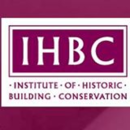

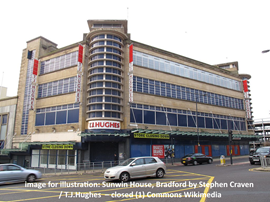

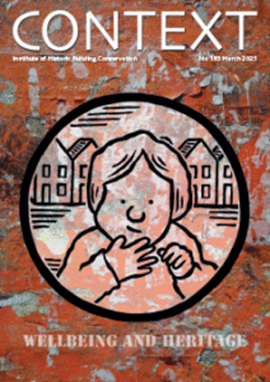
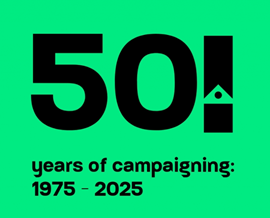



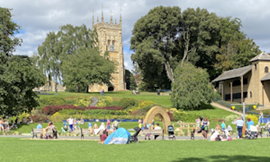
Comments
[edit] To make a comment about this article, click 'Add a comment' above. Separate your comments from any existing comments by inserting a horizontal line.